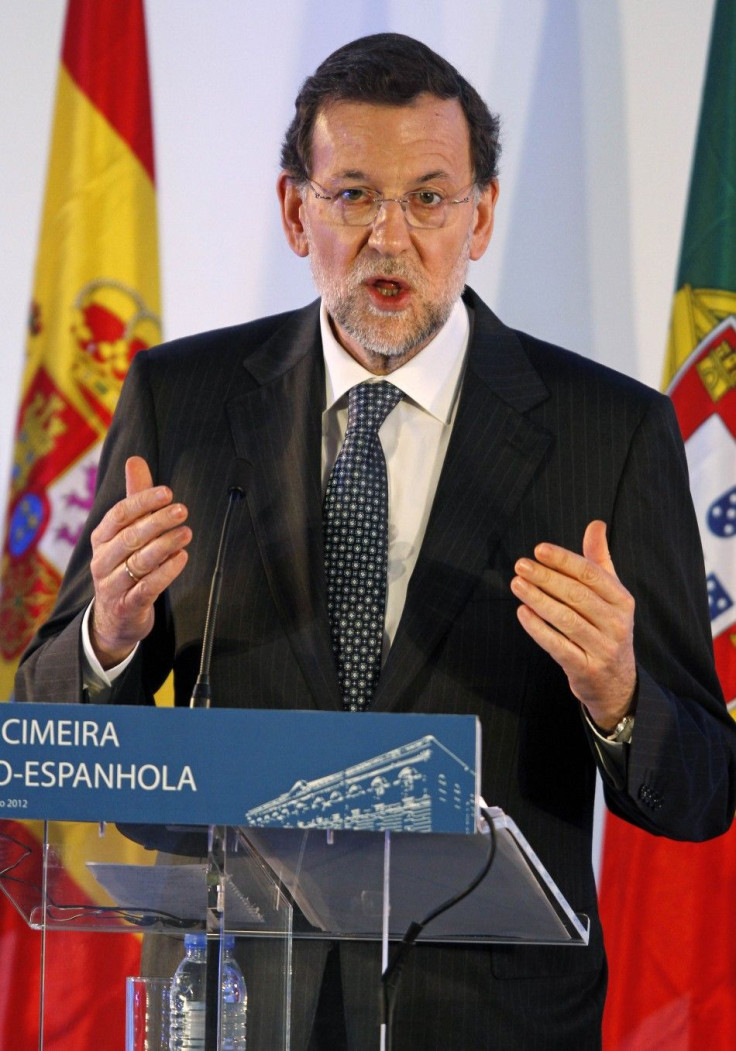Spain's PM: Fiscal Union + Monetary Union = New Euro Zone

Spanish Prime Minister Mariano Rajoy proposed on Saturday that the 17 countries in the euro zone create a common fiscal authority, with each surrendering a significant amount of its national sovereignty to send a signal to financial markets about the certainty of their single-currency experiment.
All 17 countries already have a common monetary authority, the European Central Bank.
A fiscal integration would aid the euro zone's members in multiple ways, Rajoy said, including the management of sovereign debt and tax policy.
Speaking at a conference in the Catalonian city of Sitges, Rajoy alluded to Spain's current battering by the gusts of the ongoing financial crisis and said, [The country] will emerge from the storm under its own efforts and with the support of our European partners, according to Bloomberg News. We are not on the edge of a precipice, he said.
Rajoy is not the first European leader to propose establishing a common fiscal authority, Reuters noted. However, the current challenges and the size of Spain -- a country considered too big to fail in the context of the euro zone -- have led European Union policymakers to consider measures such as the forging of fiscal links before a EU summit on June 28-29, the news agency pointed out.
Meanwhile, German Chancellor Angela Merkel and Finance Minister Wolfgang Schaeuble may be encouraging Rajoy to take an international bailout since Spain cannot solve its banking problems by itself, the German newsmagazine Der Spiegel reported this weekend, without citing a source for the information, according to Bloomberg.
The Spanish 10-year bond yield closed last week at 6.51 percent, approaching the 7 percent level that triggered previous euro-zone bailouts.
No. 1 on the list of banking problems to be solved in Spain is the requested €19 billion ($24 billion) bailout of the nationalized Bankia S.A., the country's biggest mortgage lender.
On Friday, Bankia said it will delay the payment of €61.3 million ($76.2 million) of interest on subordinated debt and preference shares issued by the banks that merged to create the ailing lender, Dow Jones Newswires reported in an article carried by the Wall Street Journal.
Rajoy's confidence in the support of Spain's European partners may or may not be well placed.
However, German Chancellor Merkel's comments about joint debt issuance in a speech on Friday might give him pause.
Addressing members of her Christian Democratic Union political party in Berlin, Merkel contended that under no circumstances would she agree to Germany-backed euro bonds, Bloomberg reported.
[Some] come along and ask for euro bonds, saying all we need are equal interest rates, and everything will turn out all right, Merkel said, but, as an alternative, she suggested all Europe needs is an economic overhaul to tackle the lack of competitiveness there.
Absent this economic overhaul, Rajoy's concept of a fiscal union and monetary union in the euro zone may not bridge the very wide gap between the realms of theory and practice any time soon.
© Copyright IBTimes 2024. All rights reserved.












